Torquay round-Britain paddleboarder makes history
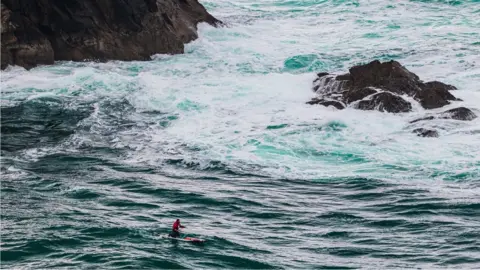 Will Reddaway
Will ReddawayA sea safety campaigner is thought to be the first person to paddleboard along the coast from Land's End to John O'Groats.
Brendon Prince, 48, set off from his home town of Torquay, Devon, on 27 April to go around mainland Britain.
On arriving at John O'Groats he said he was "elated" to reach the significant milestone in his journey.
The father of three hopes to become the first person to complete the 3,800 mile (6,115km) challenge on a SUP.
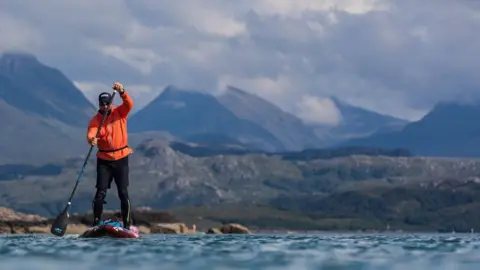 Will Reddaway
Will ReddawayThe beach lifeguard has been supported by two friends, Will Reddaway and Harry Thompson, and aims to raise £200,000 to be used to increase awareness of water safety.
The trip has seen the lows of losing a paddle in a storm to the highs of being surrounded by hundreds of dolphins.
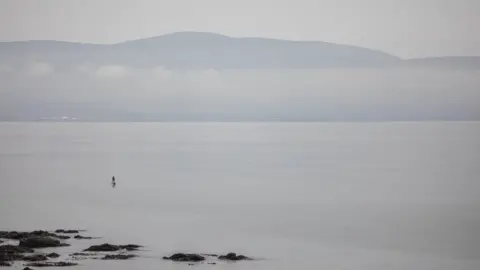 Will Reddaway
Will ReddawaySpeaking from the north of Scotland, just over 50 miles (80km) from John O'Groats, he said seeing the coastline from his board had been breathtaking.
"I hadn't understood it was this beautiful, it's an amazing island, so stunning."
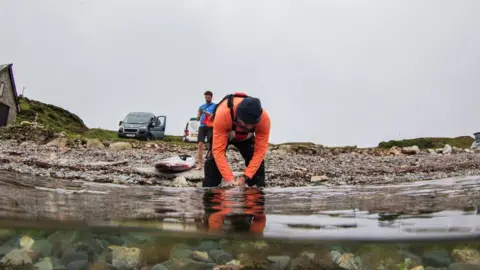 Will Reddaway
Will ReddawayProgress around the Devon and Cornwall coast was plagued by poor weather and forced rest days.
The journey from Torquay to Dartmouth took five times longer than expected.
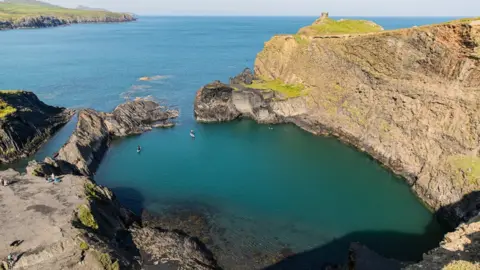 Will Reddaway
Will ReddawayOn the paddle across the Bristol Channel he was forced to a standstill for hours by the tide.
That scuppered his plans to complete the entire trip in 90 days and in Scotland he has been covering more than 20 miles (32km) a day.
He is also on track to be the first person to paddle around Scotland and to take the prize of the longest paddleboard journey which is currently 1,429 miles (2,300km).
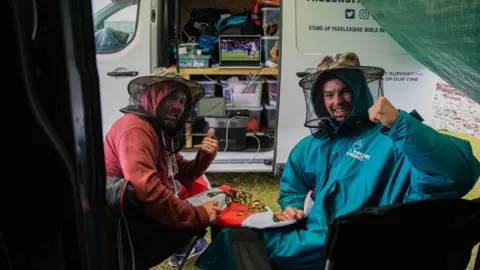 Will Reddaway
Will ReddawayIt has all been catalogued online and on social media "but there are the moments that people don't see", he said.
"Putting on wet gear at 5am and it's pouring with rain but you think I've just got to do this all day and it looks like it's going to be like this all week.
"I'm like a feather on the water because I'm so affected by the water and wind movement.
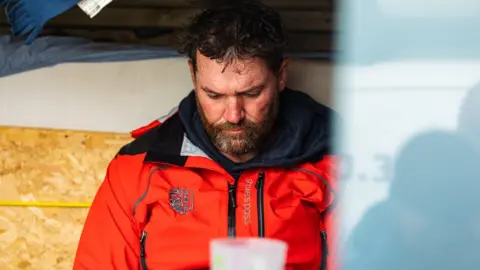 Will Reddaway
Will Reddaway"But I'm a very different paddler to what I was three months ago because I know how that weather's going to hit me.
"You read what the birds are doing, even the jellyfish, it all makes a difference.
"Birds will always take off into the wind so you can see what the wind is doing a mile ahead.
"Jellyfish always swim sideways to the current."
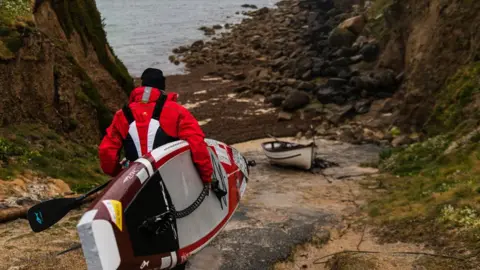 Will Reddaway
Will ReddawayHe is a servant of the tidal flows "especially in Scotland when you can have four high and four low tides in one day", he said.
"It basically means eight hours of chaos in every 24 hours which all adds to the fun of it.
"You just have to keep a smile on your face and the sun has shone on us more than it hasn't."
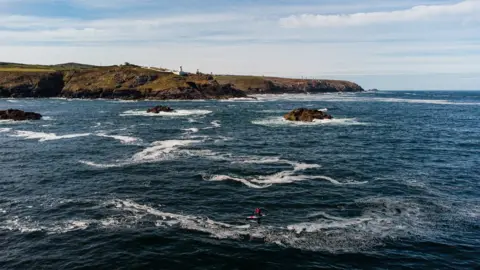 Will Reddaway
Will ReddawayWhen the sun did not shine was crossing from England to Scotland.
"It was my scariest moment," he said.
"There was this huge wind farm and I was surfing down a standing wave that was over my head with the blades above me.
"Even though they are 30m above the water it feels like they're going to chop your head off.
"Then I fell and dropped my paddle.
"It's stormy and grey and I'm 15 miles from the coast.
"I fell to my knees, my nose hit the front of the board.
"I had fallen vertically and my hands hit my paddle so I found my paddle.
"Then had another six hours to reach the destination.
"You have to start breathing, recoup and sort yourself out."
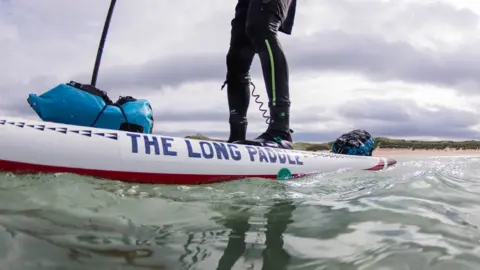 Will Reddaway
Will ReddawayHis background as a lifeguard means "I know I can deal with it", he said.
"You just get on with it.
"Panic is what kills most people so you can never panic."
He is sanguine about the east coast after getting round John O'Groats.
"I always knew we would have to have the weather on our side the whole time to get it done in 90 days," he said.
"We're on target for 120 to 125 days and once we get round John O'Groats the hardest bit on paper is done.
"I've got better tidal flows, better weather and it's more consistent."
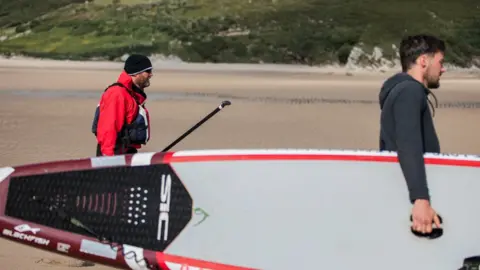 Will Reddaway
Will ReddawayAnd he has also got the thought of seeing wife Helen and his three children, who he has not seen for about eight weeks, in Inverness.
When he returns to Torquay he is sure of a warm welcome.
"More and more people have been on the beaches and harbours when I come in," he said.
"The support has been phenomenal.
"We stopped in a tiny coffee shop in the middle of nowhere and within a few minutes someone came in and was offering help.
"It's all because I think we have struck a chord with people coming out of lockdown.
"That's what we want, it means we are spreading the word and that is appreciating the island, but doing it safely."

Follow BBC News South West on Twitter, Facebook and Instagram. Send your story ideas to spotlight@bbc.co.uk.
